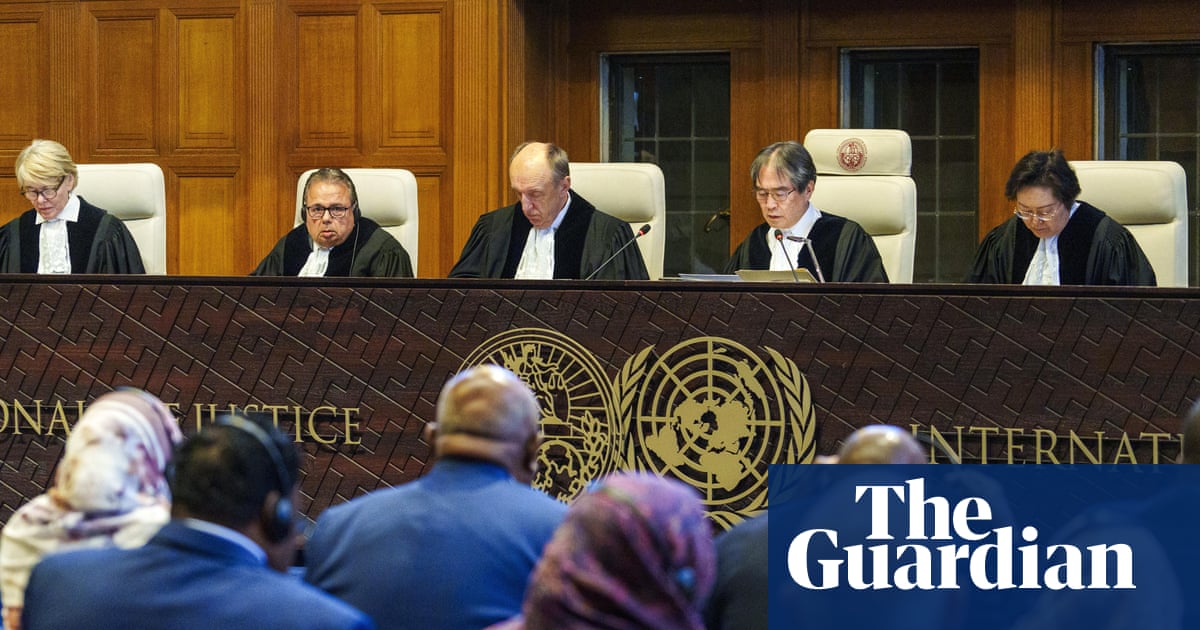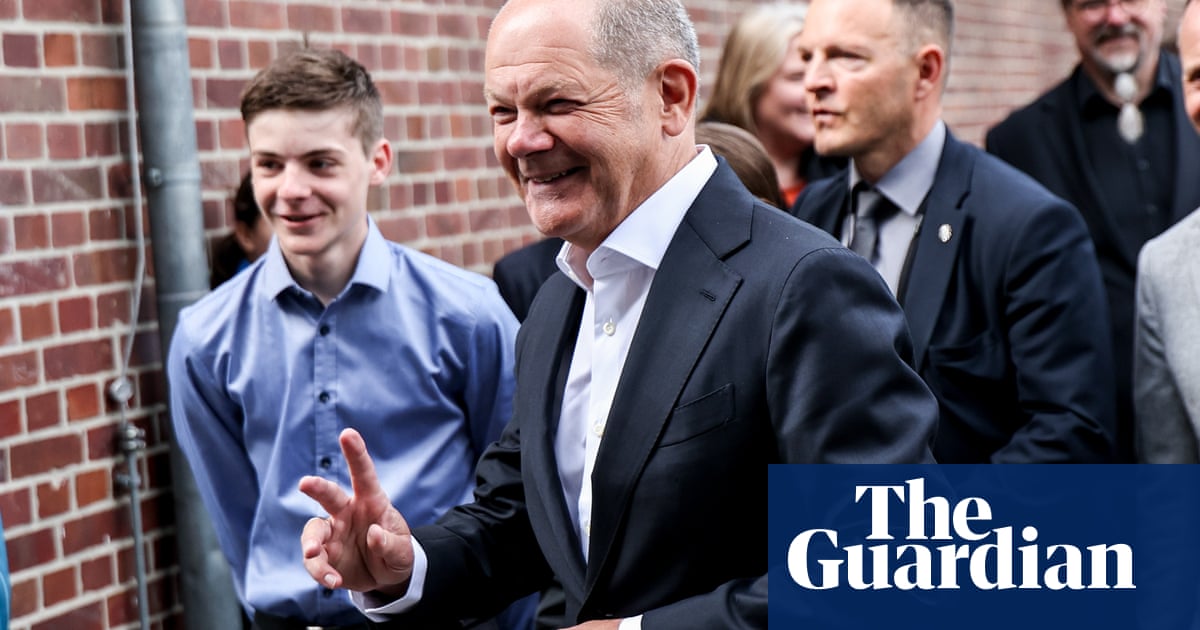Autism researchers and advocates are pushing back against the creation of an autism database – meant to track the health of autistic people in a major research study – and pointing to the ways such databases could be misused.
While the US Department of Health and Human Services (HHS) denies it’s a registry, the agency did confirm a sweeping database of autistic people will power a $50m study on autism. Health secretary Robert F Kennedy Jr said last week that he plans to announce results from the study within months.
A petition against the registry gained thousands of signatures in a single day, jumping from 2,500 to nearly 35,000 signatures within 24 hours.
“I’m a quiet person who likes to just be in the background,” said first-time petition creator Ryan Smith, a parent of two neurodiverse children living in Idaho. He also didn’t want to make himself a target.
“But I feel really, really, really strongly about this, and I have to speak up for my kids who can’t speak for themselves.”
The petition gathered nearly 50,000 names before declaring victory when HHS seemed to walk back on the plan.
“We are not creating an autism registry,” an HHS spokesperson said.
But the difference seems to be in the name. The agency is creating a “real-world data platform” to “link existing datasets” for the research into causes of and treatments for autism, the spokesperson confirmed.
“They’re saying it’s not an autism registry, but it sounds like they kind of just changed the name of it,” said Amy Marschall, an autistic psychologist who has long objected to mandatory autism registries.
The health agency did not respond to the Guardian’s questions about whether individuals would be able to opt out of the database, or how it would be structured, what kind of security and privacy measures would be taken, and whether similar databases would collect information on other conditions.
The causes of autism spectrum disorder, a range of neurological and developmental conditions that usually center on how people interact, communicate, learn and behave, have already been identified as genetic in the vast majority of cases.
Even so, Kennedy announced at a cabinet meeting last week that the new study had been launched.
“By September, we will have some of the first answers. Within six months of that, we will have definitive answers,” Kennedy said.
Smith worries that the database and research could worsen stigma around autism, and it could keep individuals and families from seeking diagnoses and care.
“And at worst, I worry that we’re on a slippery slope to eugenics,” Smith said. “My mind immediately goes to history and things that happened in Nazi Germany. That’s extreme, but it feels like a possibility.” Disabled people were the first to be targeted then, he pointed out.
Opponents also wonder about privacy and security measures, which have not been detailed by health agencies, and how individuals’ information could be used against them.
“Are you going to use this as an excuse to take away my rights, to hold me against my will, to prevent me from having children, to take away my right to manage my own finances?” Marschall asked.
All of these concerns are why, typically, “human research protections are in place, to protect against that kind of damage and to protect the people’s interests,” said Diana Schendel, professor at the AJ Drexel Autism Institute at Drexel University.
Other research projects create registries of participants, but they undertake key steps to ensure people are protected before the projects begin, Schendel said.
Usually, research registries invite participants and offer informed consent on how research will be conducted and how their information will be used.
“You can also create databases using existing data, which is what they seem to be describing,” Schendel said of the HHS project. But “you can’t just collect the information and then ask permission later”.
The national project could jeopardize important research on autism, Schendel said: “It’s going to make people even more wary of participating in research. They could withdraw from projects that are already going on.”
Kennedy’s aggressive timeline for results is also “a red flag”, Schendel said.
“The idea that you can take a lot of different datasets and pool them together into a single dataset and perform an analysis with any kind of meaningful answer in a very short period of time is naive,” Schendel said. “It would be a mess.”
To gather the data, the National Institutes of Health is exploring partnerships with other federal agencies, including the Centers for Medicare and Medicaid Services, the US Centers for Disease Control and Prevention, the Department of Defense, the Department of Veterans Affairs and others.
Jay Bhattacharya, the NIH director, also proposed collecting data from pharmacy chains, health organizations, insurance claims and medical bills, and wearable devices like smart watches, to conduct “real-time health monitoring”.
Bhattacharya’s proposal to use private datasets will also likely run into privacy concerns, since companies collected that information for other purposes and may not have permission to share it or use it for research.
“The companies, I would imagine, would be very concerned, because they’re responsible for the privacy of that information,” Schendel said.
Seven states – Delaware, Indiana, North Dakota, New Jersey, Rhode Island, Utah and West Virginia – have mandatory autism registries. Cities and local police departments sometimes also maintain registries of disabled people.
There are differences in how states collect the information. In North Dakota, for instance, clinicians are required to submit autism diagnoses. Utah has a similar requirement, but it also audits hospital records, Marschall said.
She hopes the increased attention on the federal database will stop that project in its tracks – and she hopes the state registries will also be scrutinized.
“Why do you need my confidential information that I didn’t consent to give to you?” Marschall asked.
“Nobody is saying: ‘Don’t research us.’ Nobody is saying: ‘Don’t find ways to make our lives better.’ It’s: ‘Don’t research us without any of us on your research team – and find ways to support us, not ways to eradicate us.’”
New Hampshire also had a mandatory autism registry until 2024, when state representative Eric Gallager introduced a law, with cross-partisan support, to repeal the registry and destroy the records.
“I was concerned about potential personally identifiable information in it,” Gallagher said of New Hampshire’s registry. “All states with registries should check them for potential privacy issues.”
For those wishing to change these laws, crossing partisan lines by getting Democratic, Republican and independent lawmakers to sign on may help, he said.
Smith’s petition spoke to people on all sides of politics, he said.
“It’s not necessarily a political thing,” he noted. “It’s a human thing. And there’s a lot of people affected by this.”

.png) 6 hours ago
5
6 hours ago
5













































